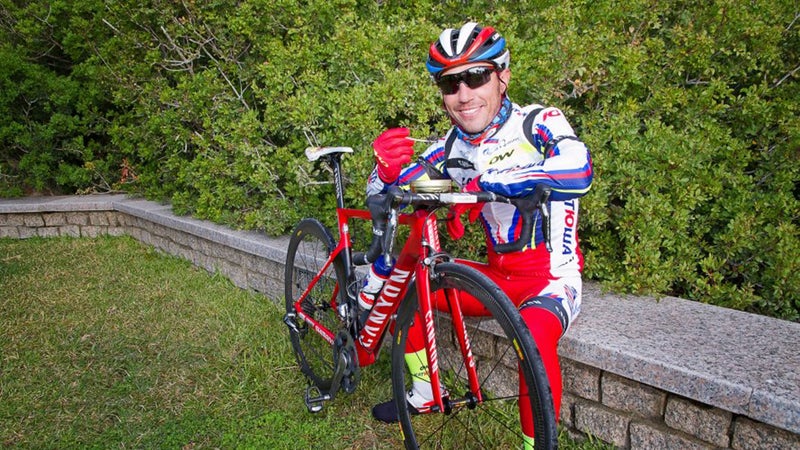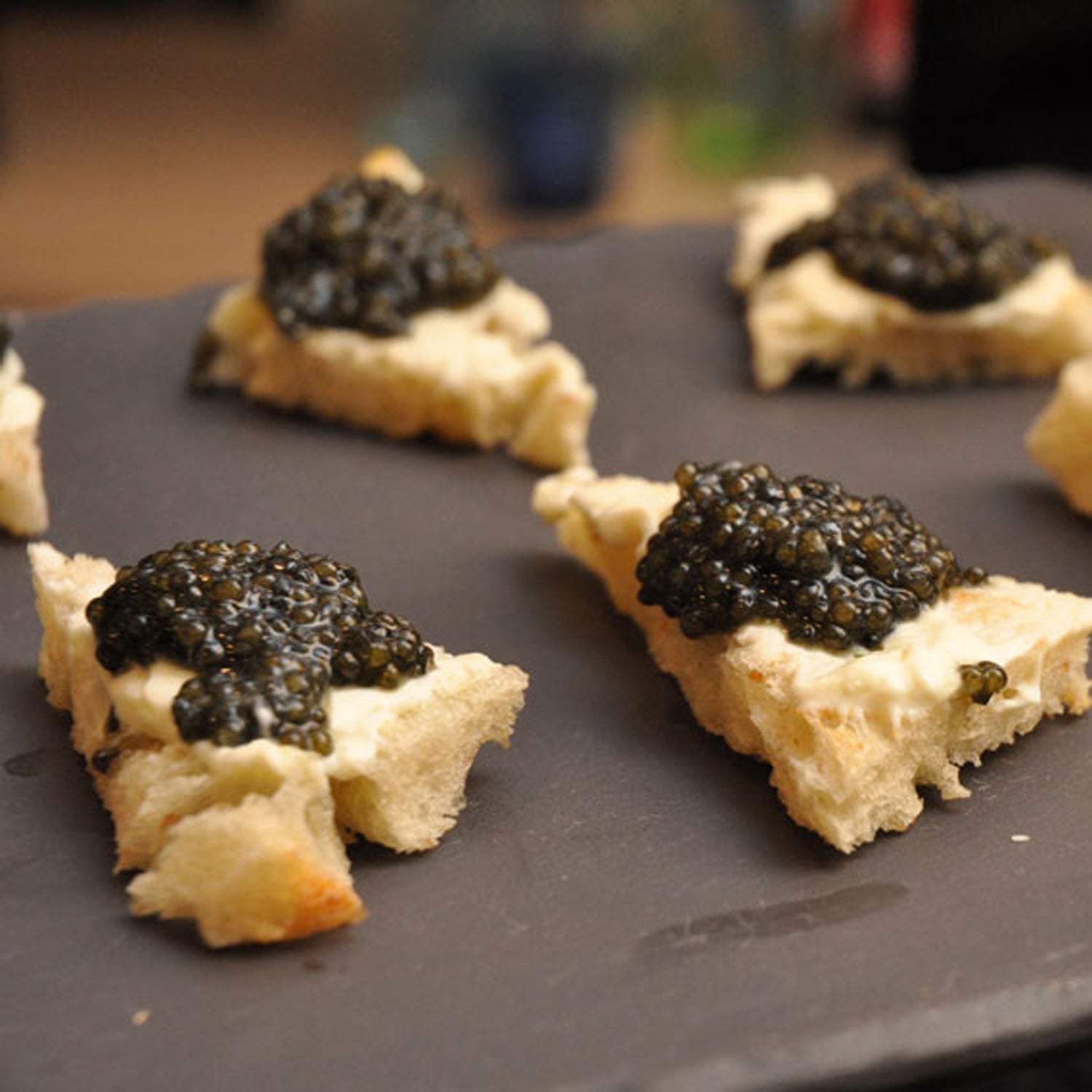There’s something fishy about the Katusha team this year (and no, it’s not doping-related).
Last month, the team announced a new sponsor: , a Spanish caviar company. Not only will the team get funding from the brand, but as part of the deal, Katusha riders will receive caviar to snack on, too.
“Black caviar is a unique food product which adds the valuable supplements of proteins, iodine, minerals, microelements and omega-3 fatty acids to the traditional diet of the athletes,” wrote Vitalii Abromov, the team’s press manager, in an email. “The black caviar from Caviar de Riofrio will become a part of rider’s diet both during training camps and all the main races, including, of course, all three Grand Tours.”

While the idea of Katusha riders pulling tins of fish roe from their jersey pockets on the slopes of Alpe D’Huez is an odd one, know that cycling has a long and storied history of food brands financing squads, even when the cuisine in question’s ties to athletic performance are dubious at best.
Bill McGann has written four books about the Grand Tours and runs the site . He’s throughout bike racing history, a surprising number of which are food-related. “In Europe, cycling is a huge sport and this is mass marketing,” he says. “It’s one of the greatest sports of Europe, not just a couple of nut jobs out for a ride.” He adds that sponsoring a team is remarkably inexpensive, compared to, say, getting your logo within spitting distance of the NFL.
Plus, cyclists—pros and recreational riders alike—are food-obsessed. And even if pro racers can’t eat the foods they’re repping (like Miko, a French ice cream brand that sponsored a team in the 70s and 80s), their less svelte (but still Lycra-committed) cousin, the weekend warrior, can. And do.
So what are some of the oddest combos that have happened over the years? Aperitifs and booze have been big sponsors, with wine, beer, and vermouth logos all appearing on jerseys. , the vegan health food brand of Paul McCartney’s wife, sponsored a team in 1988. A group of cheese makers, called had a team in the early 2000s, and Italian salami manufacturer Molteni sponsored Eddie Merckx. Oh, and American pistachios are apparently the —something I learned when I picked up a packet of nuts at my local convenience store and saw his grimacing, mid-sprint mug growling up at me.
But the oddest sponsorship of all time does not include a food item at all. Instead, it involves a washed-up nightclub singer with too much money to burn. After her Greek millionaire husband died, singer sponsored Raphaël Géminiani and the De Kova-Lejeune team. “It was a plan to revive De Kova’s career,” says McGann. It didn’t work. The team was pathetic, and the partnership only lasted a year.
Which highlights an important fact about sponsorship: This is first and foremost a business decision. If a sponsor doesn’t see return on investment, it won’t be back for more.


